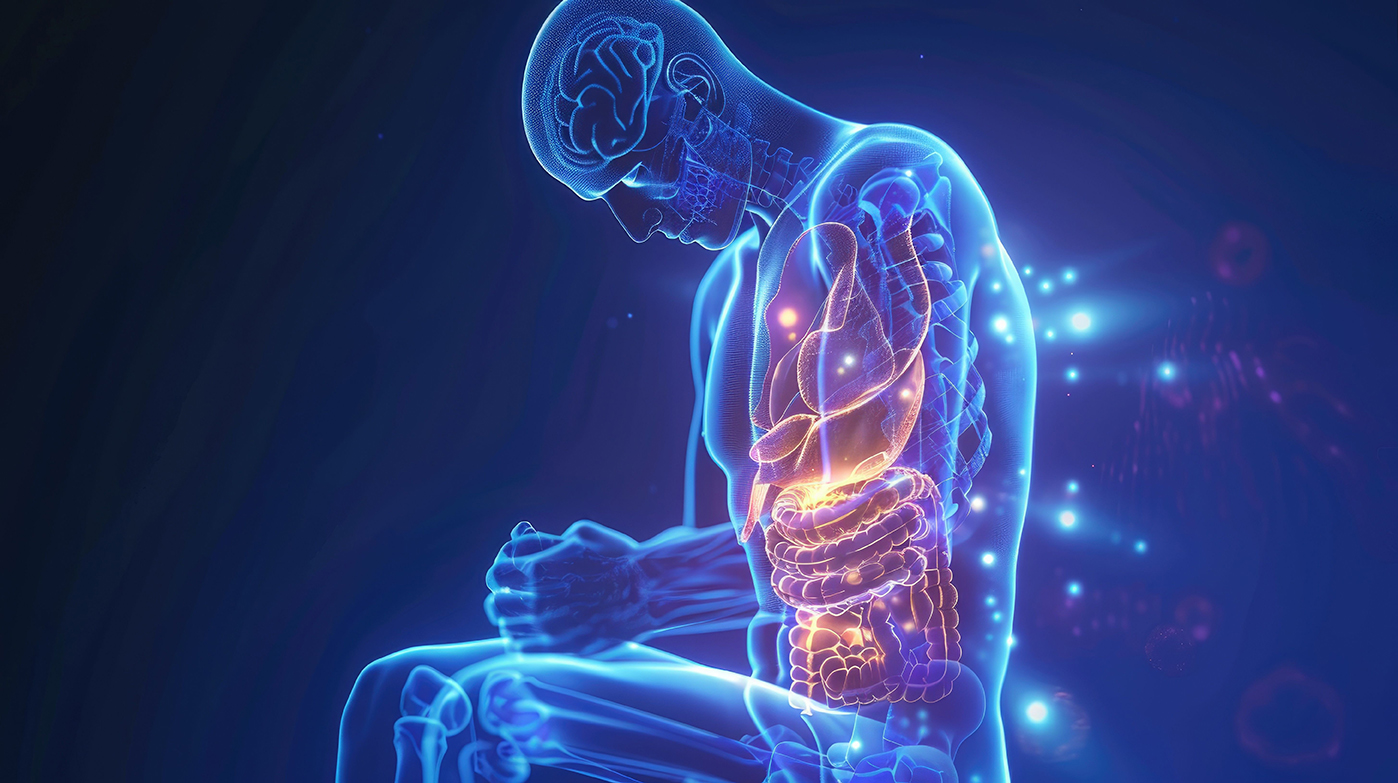Blog
Chiropractic and Digestion
Chiropractic and Digestion: The Surprising Connection
When people think about chiropractic care, they often focus on back or neck pain. But there’s a lesser-known benefit that deserves attention: better digestion. The connection between chiropractic and digestion lies in the nervous system—and how spinal health affects the gut.
Your digestive organs are controlled by nerves that branch from the spinal cord. If your spine is misaligned, it can interfere with the communication between your brain and your digestive system. This interference may contribute to issues like bloating, constipation, acid reflux, or irregular bowel movements.
Community Chiropractic & Acupuncture of Park Slope looks for areas of restricted movement or subluxation—places where the spine is out of alignment. These areas can put pressure on the nerves that regulate digestion. By gently adjusting the spine, chiropractors restore motion and reduce nerve interference. The result? A more balanced and responsive digestive system.
In fact, many patients notice improved digestion shortly after starting chiropractic care. This isn’t surprising when you consider that the thoracic and lumbar regions of the spine play a key role in digestive function. When these areas are properly aligned, the body’s ability to process food, absorb nutrients, and eliminate waste often improves.
Chiropractic care also supports digestion by reducing stress. Stress triggers the “fight or flight” response, which slows digestion. Gentle adjustments can help calm the nervous system, allowing the body to shift back into a more relaxed, “rest and digest” state.
If you’re struggling with digestive discomfort and haven’t found relief through traditional methods, chiropractic care may be worth exploring. It’s a drug-free, natural approach that supports the body’s ability to heal and function optimally—from the inside out.
Ready to discover how chiropractic can help your digestion? Schedule your appointment today and get your gut back in balance.
Click here to contact Community Chiropractic & Acupuncture of Park Slope or call (718) 398-3100
Beat the heat
Beat the Heat: Why Hydration and Spinal Health Go Hand-in-Hand
Summer heat is no joke—but neither is dehydration’s effect on your spine and nervous system. As temperatures rise, staying hydrated becomes more than a matter of comfort. It becomes essential for protecting your spinal health and overall function.
Your spine isn’t just bone—it’s a dynamic system of vertebrae, discs, nerves, and soft tissue that all depend on proper hydration. The intervertebral discs, in particular, act as natural shock absorbers. They’re made up of a soft, gel-like center that’s roughly 80% water. When you’re dehydrated, those discs can lose volume and flexibility, making the spine more prone to stiffness, discomfort, and even injury.
But the effects don’t stop there. Your nervous system—which runs through your spinal cord—also relies on adequate hydration to function properly. Without enough water, the body may struggle to regulate temperature, send accurate nerve signals, or keep inflammation in check. That means poor hydration can contribute to fatigue, slower healing, and even chronic pain.
This is where chiropractic care comes in. Regular adjustments help restore proper alignment in the spine, which allows for optimal nerve communication and fluid movement throughout the body. When your spine is in alignment and your body is hydrated, your systems can work together to regulate stress, repair tissue, and improve your overall energy levels—especially in the summer heat.
So how can you stay on top of hydration this summer?
- Drink water consistently, not just when you feel thirsty.
- Avoid excessive caffeine and alcohol, which can dehydrate you.
- Eat water-rich foods like cucumbers, watermelon, and leafy greens.
- Get adjusted regularly to support spinal alignment and nervous system performance.
At our office, we look at your health from every angle—including how simple habits like water intake impact your spine, mobility, and energy. A small change like staying better hydrated can improve the way your body moves and feels—especially when combined with gentle, targeted chiropractic care.
Don’t let the summer heat wear you down. Beat the Heat…Drink water, stay aligned, and feel the difference.
Click here to contact our Office or call (718) 398-3100
Freedom from Pain
How Chiropractic Care Supports Your Independence
This Fourth of July, celebrate more than just our country’s independence, celebrate your own freedom from pain. At Community Chiropractic & Acupuncture, we help patients break free from discomfort and rediscover what it means to live actively, confidently, and without restriction.
Chiropractic care restores motion, reduces inflammation, and improves nervous system function by gently correcting spinal misalignments. When your spine is out of alignment, it can create pressure on nerves, leading to back pain, headaches, joint stiffness, and fatigue. These issues can quietly steal your independence and limit your ability to enjoy everyday life.
Our practice focuses on restoring your body’s natural function through personalized chiropractic adjustments. Each visit targets spinal alignment and improves communication between your brain and body. With regular care, many patients experience improved flexibility, better posture, reduced stress, and greater energy—all without medication or surgery.
This Independence Day, ask yourself: Am I truly free in my body, or am I letting pain and tension hold me back? Chiropractic care offers a safe, natural way to take control of your health and regain your freedom from pain.
Whether you’re dealing with chronic back issues, recurring headaches, or just feel out of balance, chiropractic care can help. Our goal is to support your long-term health by addressing the root causes, not just the symptoms, so you can move, live, and feel your best.
Don’t let discomfort stop you from enjoying your life. Celebrate this season with a renewed sense of freedom and mobility. Chiropractic care can help you live without limits.
Schedule your appointment with us today and take the first step toward real freedom from pain.
Click here to contact our Office or call (718) 398-3100
Chiropractic Care for Kids
Supporting Growth and Health Naturally
As summer approaches, kids are more active than ever—running, jumping, biking, and enjoying long days of play. While it’s great to see them moving, these sudden bursts of activity can put stress on their growing bodies. That’s where chiropractic care for kids can make a big difference.
Children’s bodies grow and change rapidly. Their bones, joints, and nervous systems are constantly adapting to new movements, sports, and daily habits. Whether they’re spending long hours in front of a screen during the school year or taking tumbles on the playground, their spines often carry more stress than you might think. Chiropractic adjustments help keep their bodies in balance, allowing for proper alignment, better posture, and improved mobility.
Many parents bring their children in for care after they notice signs like slouching, uneven gait, or complaints of discomfort after activity. Others use chiropractic care proactively, helping their kids stay aligned and resilient as they grow. Gentle adjustments support the nervous system, which controls everything from movement to sleep to digestion. When the spine is in proper alignment, the entire body functions more efficiently.
Regular chiropractic visits can also help children recover more quickly from falls or injuries. Even minor slips can affect spinal alignment, especially when they happen repeatedly over time. A quick check and adjustment can help the body heal properly and avoid long-term strain.
Summer is an ideal time to get your child adjusted. Their routines are more flexible, they’re spending more time moving, and they’re free from the daily stress of school. Whether your child is active in sports, preparing for a family trip, or simply enjoying playtime, a chiropractic visit helps them stay at their best.
Healthy kids are happy kids—and a properly aligned spine plays a key role in that. Chiropractic care offers a natural, gentle, and effective way to support your child’s growth, development, and overall well-being.
Schedule your child’s summer adjustment with us today! Help your child enjoy a fun, active, and comfortable summer.
Click here to contact our Office or call (718) 398-3100
Golden Years
Chiropractic Self-Care: Enhancing Longevity and Quality of Life in Your Golden Years
Aging gracefully involves more than just good genetics—it requires intentional daily choices that support your health and vitality. Integrating chiropractic care into your self-care routine empowers you to maintain mobility, reduce discomfort, and enjoy a fulfilling, active lifestyle well into your later years.
1. Embrace Regular Chiropractic Care
Consistent chiropractic adjustments help maintain spinal alignment, which is crucial for overall health. By addressing misalignments, chiropractic care can alleviate pain, improve posture, and enhance nervous system function, contributing to better balance and coordination. This proactive approach supports your body’s natural healing processes, promoting longevity and well-being.
2. Stay Active with Confidence
Chiropractic care complements physical activity by ensuring your musculoskeletal system functions optimally. Regular adjustments can reduce joint stiffness and muscle tension, making it easier to engage in exercises like walking, swimming, or yoga. Staying active not only boosts your physical health but also enhances mental clarity and emotional resilience.
3. Prioritize Nutritional Health
A balanced diet rich in essential nutrients supports spinal health and overall wellness. Chiropractors often provide guidance on nutrition, helping you make informed choices that fuel your body and support recovery. Proper nutrition works synergistically with chiropractic care to maintain energy levels and prevent age-related health issues.
4. Enhance Mental and Emotional Well-Being
Chronic pain and physical limitations can impact mental health. By reducing discomfort and improving mobility, chiropractic care can positively influence your mood and outlook on life. Feeling better physically often leads to increased social engagement and a more active lifestyle, which are key components of emotional well-being.
5. Commit to Preventive Health Measures
Regular chiropractic visits serve as a preventive strategy, identifying and addressing minor issues before they escalate. This proactive approach helps maintain your independence and reduces the risk of injuries that can significantly impact your quality of life.
Incorporating chiropractic care into your self-care regimen is a powerful step toward a healthier, more vibrant life. By addressing the root causes of discomfort and promoting overall wellness, chiropractic care enables you to enjoy your golden years with greater ease and joy.
Click here to contact our Office or call (718) 398-3100
Longer Days
As the days grow longer, our bodies naturally respond to the increased sunlight and extended hours of daylight. While this seasonal shift brings many benefits, it can also disrupt sleep patterns, energy levels, and overall well-being. Understanding these changes and how chiropractic care can support your body’s adaptation is key to maintaining optimal health.
The Impact of Longer Days on Your Health
- Circadian Rhythm Disruptions – Our internal body clock, or circadian rhythm, is influenced by natural light. Longer daylight hours can delay melatonin production, making it harder to fall asleep and potentially leading to sleep disturbances.
- Increased Energy and Activity Levels – With more daylight, people tend to stay active longer, engaging in outdoor activities and exercise. While this is great for overall health, increased physical activity can sometimes lead to muscle strain or joint misalignments.
- Vitamin D Boost – Sunlight exposure increases vitamin D production, which is essential for bone health, immune function, and mood regulation. However, too much sun exposure can also lead to dehydration and fatigue if not managed properly.
- Potential Stress and Fatigue – Longer days often mean busier schedules, which can lead to increased stress and physical exhaustion. Over time, this can impact posture, spinal alignment, and overall wellness.
How Chiropractic Care Can Help
- Improves Sleep Quality – Chiropractic adjustments help regulate the nervous system, allowing your body to adapt more easily to changes in sleep patterns.
- Supports Joint and Muscle Health – Regular chiropractic care ensures proper alignment, reducing strain from increased activity during longer days.
- Enhances Energy and Focus – By optimizing nervous system function, chiropractic adjustments help maintain consistent energy levels and prevent fatigue.
- Reduces Stress and Tension – Chiropractic care promotes relaxation by relieving muscle tension and improving circulation, helping you stay balanced during seasonal changes.
As the days continue to lengthen, paying attention to how your body responds is essential. Chiropractic care can provide the support needed to keep you feeling your best. If you’re experiencing sleep disturbances, fatigue, or increased physical strain, consider scheduling an adjustment to help your body transition smoothly into the longer days ahead.
Click here to contact our Office or call (718) 398-3100
Chiropractic & Fertility
Chiropractic & Fertility: How Spinal Alignment Supports Reproductive Health
Many couples struggling with fertility may not realize that spinal alignment plays a crucial role in reproductive health. The nervous system controls every function in the body, including the reproductive organs. When the spine is misaligned, particularly in the pelvis and lower back, it can interfere with nerve signals, disrupt hormone balance, and contribute to difficulties in conception.
The Connection Between the Spine and Reproductive Health
The spine houses the nervous system, which communicates with every organ, including the uterus, ovaries, and other reproductive structures. Misalignments, or subluxations, in the lower spine and pelvis can create tension and imbalances that may hinder reproductive function. By restoring proper alignment, chiropractic adjustments can help optimize the body’s natural ability to conceive.
How Chiropractic Care Supports Fertility
- Pelvic Alignment – A misaligned pelvis can lead to tension in the surrounding muscles and ligaments, restricting blood flow and nerve communication to reproductive organs. Chiropractic adjustments help create a balanced and open pelvic environment, increasing the chances of conception.
- Hormonal Balance – The nervous system regulates hormone production, which is essential for ovulation and a healthy menstrual cycle. Chiropractic care helps remove nerve interference, allowing the body to regulate hormones more effectively.
- Improved Blood Flow – Proper circulation to the reproductive organs is vital for fertility. Chiropractic adjustments can enhance blood flow by relieving tension and improving alignment in the spine and pelvis.
- Reduced Stress – Stress plays a significant role in fertility struggles, as high cortisol levels can disrupt reproductive hormones. Chiropractic care promotes relaxation, reduces tension, and supports overall well-being, helping to create a more favorable environment for conception.
Real Results: Chiropractic Success Stories
Chiropractic care has contributed to numerous successful pregnancies. In our practice, we’ve seen cases where women struggling with fertility conceived after receiving chiropractic adjustments. By aligning the pelvis, hips, and spine, we helped optimize their body’s natural reproductive function, leading to positive outcomes.
Chiropractic Care: A Natural Approach to Fertility
If you or someone you know is facing fertility challenges, chiropractic care may be a valuable addition to your wellness routine. By ensuring the spine and nervous system are functioning at their best, you can support your body’s natural ability to conceive.
Schedule a consultation today to explore how chiropractic adjustments can help you on your journey to parenthood!
Click here to contact our Office or call (718) 398-3100
Heart Health
Heart Health & Chiropractic: The Surprising Connection
February is Heart Health Month, a time to focus on cardiovascular wellness and the steps we can take to keep our hearts strong. While diet and exercise are well-known factors in heart health, one often-overlooked contributor is spinal alignment. Proper spinal health plays a crucial role in circulation, nerve function, and overall cardiovascular well-being. Here’s how chiropractic care can support a healthier heart.
The Spine’s Role in Circulation
The spine houses and protects the central nervous system, which controls every function in the body, including heart rate and circulation. Misalignments in the spine, known as subluxations, can create nerve interference, disrupting signals between the brain and heart. This interference may contribute to issues such as poor circulation, increased blood pressure, and even heightened stress levels—factors that all impact heart health.
Chiropractic Care and Blood Pressure Regulation
Research has shown that spinal adjustments, particularly in the upper cervical spine, can help regulate blood pressure. A study published in the Journal of Human Hypertension found that a specific chiropractic adjustment to the atlas vertebra resulted in significant reductions in blood pressure, comparable to the effects of some blood pressure medications. By restoring proper alignment, chiropractic care may help support cardiovascular function naturally.
Reducing Stress for a Healthier Heart
Chronic stress is a major contributor to heart disease. When the body is under stress, it releases cortisol and adrenaline, which can increase heart rate and blood pressure. Chiropractic care has been shown to reduce stress levels by improving nervous system function and promoting relaxation. Many patients report feeling a sense of calm and balance after an adjustment, which can have positive effects on heart health over time.
Enhancing Circulation and Mobility
Spinal misalignments can lead to muscle tension, restricted movement, and poor circulation. Chiropractic adjustments help improve blood flow by relieving pressure on nerves and blood vessels. Better circulation means that oxygen and nutrients are more efficiently delivered throughout the body, supporting cardiovascular health and overall vitality.
Prioritize Your Heart Health This Month
This Heart Health Month, consider chiropractic care as part of your wellness routine. By ensuring your spine is properly aligned, you’re not only supporting a healthier nervous system but also promoting better circulation, reduced stress, and improved heart function.
Schedule a chiropractic visit today and take a proactive step toward a healthier heart and a healthier you!
Click here to contact our Office or call (718) 398-3100
Butt Pain
Butt pain can interfere with your daily life, making it difficult to sit, walk, or perform routine tasks. This discomfort often originates from the lower back, hips, or sciatic nerve, and addressing it requires a targeted approach. Community Chiropractic & Acupuncture specializes in musculoskeletal health and provides effective, non-invasive solutions for managing and eliminating butt pain.
Common Causes of Butt Pain
Several factors can contribute to pain in the gluteal region. One frequent culprit is piriformis syndrome, where the piriformis muscle compresses the sciatic nerve, leading to pain that radiates down the leg. Sciatica, caused by irritation or compression of the sciatic nerve, is another common condition. Other causes include sacroiliac joint dysfunction, lower back issues like herniated discs, and muscle strains from overuse or injury.
How Chiropractic Care Helps
Community Chiropractic & Acupuncture uses a holistic approach to identify and treat the root cause of butt pain rather than just addressing symptoms. Through a thorough evaluation, they determine whether your pain stems from misaligned joints, nerve irritation, or muscle dysfunction.
- Spinal Adjustments
Misalignments in the lower back or sacroiliac joints can contribute to butt pain. Chiropractors perform spinal adjustments to restore proper alignment, reduce nerve pressure, and improve joint function. - Soft Tissue Therapy
Chiropractors often incorporate soft tissue techniques, such as myofascial release, to address muscle tension or spasms in the gluteal region. These therapies help reduce pain and improve mobility. - Stretching and Strengthening Exercises
Targeted exercises enhance flexibility and strengthen the muscles supporting the hips and lower back. Chiropractors guide patients through specific routines to address imbalances and prevent future issues. - Posture and Ergonomic Advice
Poor posture or prolonged sitting can exacerbate butt pain. Chiropractors offer personalized advice on posture and workstation ergonomics to minimize strain on the affected areas. - Lifestyle Modifications
For long-term relief, chiropractors may recommend lifestyle adjustments, including proper exercise routines and dietary changes to support musculoskeletal health.
Benefits of Chiropractic Care
Chiropractic care offers a drug-free, non-surgical solution to butt pain. By addressing the underlying cause, it provides lasting relief while improving overall function and mobility. Patients often report significant improvements in their quality of life after consistent treatment.
If butt pain is holding you back, a chiropractor can help you find relief and regain control of your daily activities. Take the first step toward a pain-free life with chiropractic care!
Click here to contact our Office or call (718) 398-3100
Health Goals for the New Year
It’s the perfect time to set fresh health goals and prioritize your well-being. Whether you want to exercise more, lose weight, or simply feel better in your daily life, chiropractic care can help you succeed. By focusing on improving your body’s function, chiropractic adjustments make movement easier, reduce pain, and help you achieve lasting results.
Many people start the year motivated, but physical discomfort or stiffness can quickly derail even the best intentions. That’s where chiropractic care steps in. Regular adjustments enhance spinal alignment, improve joint mobility, and optimize nervous system function. When your body functions at its best, pain naturally decreases, and energy levels rise. This improvement makes it easier to stick with exercise routines and other healthy habits.
Imagine starting your mornings pain-free, ready to tackle workouts, yoga sessions, or long walks without hesitation. Chiropractic care reduces tension, improves flexibility, and supports proper posture, allowing your body to move fluidly and comfortably. Small changes, like maintaining better posture or stretching consistently, create a foundation for bigger health transformations.
Chiropractic care also helps prevent injuries that can sideline your progress. Misalignments often lead to imbalances that put extra strain on muscles and joints. Regular adjustments correct these issues, keeping your body balanced and resilient. With fewer aches and pains holding you back, it becomes easier to maintain momentum and stay active throughout the year.
Additionally, chiropractic adjustments support mental clarity and stress relief. As your body relaxes, tension fades, and you feel more focused and positive. When your mind and body work together harmoniously, you’re better equipped to set and achieve meaningful health goals.
This year, let chiropractic care be your partner in building a healthier lifestyle. Start with a simple step—schedule an adjustment to assess your current alignment and create a personalized plan for success. As function increases, pain decreases, opening the door to greater possibilities and a more vibrant life.
Don’t let discomfort keep you from reaching your full potential. Embrace the new year with confidence, knowing chiropractic care can help you feel and move better every day. Make this year the one where you achieve your health goals and thrive!
Click here to contact our Office or call (718) 398-3100










